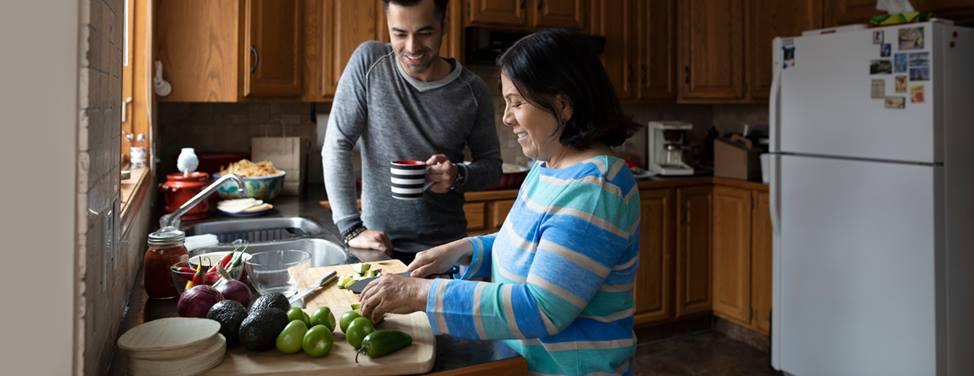
Self-Care for Caregivers
The physical and emotional demands of caring for a loved one with a serious illness can be exhausting and even lead to burnout. It's important to maintain your own health and well-being so you can provide the best possible care.
Here are tips for handling some of the common challenges for caregivers:
- Take time for yourself and your own needs. Watch for signs of stress, such as impatience, loss of appetite or difficulty with sleep, concentration or memory. Pay attention to changes in your mood, a loss of interest in usual activities or an inability to accomplish usual tasks.
- Eat a well-balanced diet. Drink plenty of water every day.
- Exercise by taking short walks daily or at least three times a week.
- Listen to guided relaxation recordings or relaxing music.
- Schedule short rest periods between activities. Make it a priority to get a good night's sleep.
- Set limits for what you can do.
- Don't overload your daily to-do list. Be realistic.
- Find a few hours several times a week for activities that you find meaningful and enjoyable.
- Let family members and friends help with household chores, meal preparation, childcare and shopping.
- Keep the lines of communication open among your loved one, you, your family and friends, and the health care team.
- Share your feelings with family members or other caregivers, or join a support group.
- Give yourself credit: The care you give does make a difference.
You are not alone. UCSF Health offers experienced and sensitive social workers and case managers to help patients and their families cope with illness, hospitalization and medical treatment.
Adapted from "Self-Care for the Caregiver," Oncology Nursing Society, 2001.
UCSF Health medical specialists have reviewed this information. It is for educational purposes only and is not intended to replace the advice of your doctor or other health care provider. We encourage you to discuss any questions or concerns you may have with your provider.




























